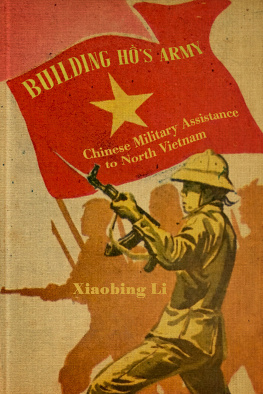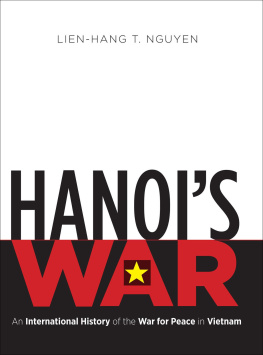Nixons Nuclear Specter
MODERN WAR STUDIES
Theodore A. Wilson
General Editor
Raymond Callahan
Jacob W. Kipp
Allan R. Millett
Carol Reardon
Dennis Showalter
David R. Stone
Series Editors
NIXONS
NUCLEAR SPECTER
The Secret Alert of 1969, Madman
Diplomacy, and the Vietnam War
William Burr
Jeffrey P. Kimball

For
Linda Musmeci Kimball
and in memory of
Joan S. and John P. Burr
2015 by the University Press of Kansas
All rights reserved
Published by the University Press of Kansas (Lawrence, Kansas 66045), which was organized by the Kansas Board of Regents and is operated and funded by Emporia State University, Fort Hays State University, Kansas State University, Pittsburg State University, the University of Kansas, and Wichita State University
Library of Congress Cataloging-in-Publication Data
Burr, William.
Nixons nuclear specter : the secret alert of 1969, madman diplomacy, and the Vietnam War / William Burr, Jeffrey P. Kimball.
pages cm. (Modern war studies)
Includes bibliographical references and index.
ISBN 978-0-7006-2082-1 (cloth : alk. paper) ISBN 978-0-7006-2083-8 (ebook)
1. Vietnam War, 19611975Diplomatic history. 2. Nuclear weaponsGovernment policyUnited StatesHistory20th century. 3. Nixon, Richard M. (Richard Milhous), 19131994Influence. 4. United StatesForeign relations19691974. 5. United StatesMilitary policy20th century. I. Kimball, Jeffrey P. II. Title.
DS559.7.B87 2015
959.70432--dc23
2015002802
British Library Cataloguing-in-Publication Data is available.
Printed in the United States of America
10987654321
The paper used in this publication is recycled and contains 30 percent postconsumer waste. It is acid free and meets the minimum requirements of the American National Standard for Permanence of Paper for Printed Library Materials Z39.481992
The main thing is [we] must hold up the
specter of pressures for hitting the North.
Richard M. Nixon
CONTENTS
ACKNOWLEDGMENTS
One of the pleasures of completing this book is that it provides us the opportunity to thank those who helped along the way and over the years. Among them are the dedicated archivists and staffers at the US National Archives, the Richard M. Nixon Presidential Library, the Gerald R. Ford Presidential Library, the Library of Congress, the History and Archives Branch of the Naval History and Heritage Command, the US Air Force Historical Research Agency, and the US Army Military History Research Collection. In particular, we thank Patricia Anderson; Edward Barnes; David Colamaria; Christine Jones; David Langbart; Abigail Malingone; Timothy Pettit; John Powers; Sam Rushay; and three archivists who have since passed on: Milton Gustafson, Sally Marks, and John Taylor. We have also benefited from the assistance of David Geyer at the Office of the Historian of the US Department of State, curator Wendy Chmielewski and Mary Beth Sigato of Technical Services at the Swarthmore College Peace Collection, and Alana Ziaya at the Marshfield Clinic Laird Collections.
Many of the documents cited in this book required declassification review, mainly through the mandatory review provisions of White House executive orders. In this respect, the Historical Records Declassification Office of the Washington Headquarters Services, then under the direction of Robert Storer, played an important role in releasing significant documents from the files of Secretary of Defense Melvin Laird. Staffers with US government archives and government agencies were tremendously helpful in making documents available and processing or otherwise facilitating declassification requests for records at the Department of State, the Nixon Library, and the National Archives. They include Jay Bosanko, David Fort, Kathleen M. Grant, Thomas Haughton, Dorothy Johnson, and Kenneth Stein.
Unfortunately, archivists could not provide access to papers of Henry Kissinger, held at the Library of Congress. This restriction is the result of Kissingers deed of gift to the library, according to which his papers remain closed to all but privileged individuals until five years after his deatheven though they include highly significant US government records that are available nowhere else. This restriction, possibly the last standing abuse of power of the Nixon era, is most likely in violation of federal records laws.
Former government officials from both sides of the Vietnam War have illuminated the archival record by providing valuable information through face-to-face and telephone interviews, postal correspondence, or e-mails. For sharing their recollections, we thank in particular: Morton Halperin, James Hoge, Melvin R. Laird, Anthony Lake, the late William L. Lemnitzer, Winston Lord, the late Luu Doan Huynh, Luu Van Loi, Roger Morris, Robert E. Pursley, Lawrence Lynn, Jr., the late Nguyen Co Thach, and the late William Watts. Daniel Ellsberg not only shared his recollections but also made helpful comments about the manuscript.
Leopoldo Nuti, Ennio di Nolfo, and Max Guderzo of the Machiavelli Center for Cold War Studies provided us with an opportunity to present some of our early findings about the October 1969 alert at a terrific conference in Dobbiaco, Italy, in September 2002. David Geyer made it possible for us to present our argument and evidence at the Department of States Office of the Historian in December of that year, during which staff historians posed challenging questions.
Sally James made initial revisions to the map of Indochina, and Darin Franck updated it; he also prepared the maps of border base areas and the JCS Readiness Test. We are grateful to both of these graphic artists for their superb work.
We have benefited from the outstanding editorial and production process at the University Press of Kansas. Our book proposal was vetted by David Anderson, Lloyd Gardner, and Marilyn Young, and we thank them for supporting it. For their assiduous and constructive reading of the manuscript, we are indebted to Lynn Eden and John Prados. We are grateful to Editor in Chief Michael Briggs, not only for his interest in our original proposal but also for guiding the manuscript through the publication process, and to those on the UPK staff with whom we have worked: Kelly Chrisman Jacques, Rebecca J. Murray, Sara Henderson White, and Mike Kehoe.
I, Bill Burr, thankfully acknowledge the support of the National Security Archive, which provides a wonderfully congenial workplace and a matchless platform for the declassification requesting that was crucially important for this book. For encouraging this kind of history and for keeping the organization alive and well, the archives director, Tom Blanton, and deputy director, Malcolm Byrne, deserve special thanks. The archives nuclear project has had generous benefactors, who have contributed to the making of this book; it is a pleasure to acknowledge the support of numerous foundations, especially the Prospect Hill Foundation, the New-Land Foundation, the Carnegie Corporation, and the MacArthur Foundation, which are currently supporting the archives nuclear weapons documentation project. The Ploughshares Fund and the late, lamented W. Alton Jones Foundation also provided important support. In the late 1980s and early 1990s, the MacArthur Foundation underwrote the Nuclear History Program, which directly supported the National Security Archive and advanced an enduring network of researchers.
I gratefully thank Ming for her patience and support. To several former teachers at Northern Illinois University, especially Carl P. Parrini and the late Martin J. Sklar, I have intellectual debts. Conversations over the years with Bart Bernstein, Lynn Eden, David Geyer, Jim Hershberg, Max Holland, Mikio Haruna, Michael Hopkins, Mark Kramer, Klaus Larres, Mel Leffler, Phil Nash, the late Anna Nelson, Leopoldo Nuti, Christian Ostermann, David Painter, John Prados, and David Rosenberg about nuclear and Cold War history have always been instructive and stimulating.
Next page
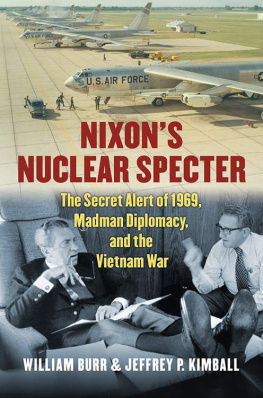
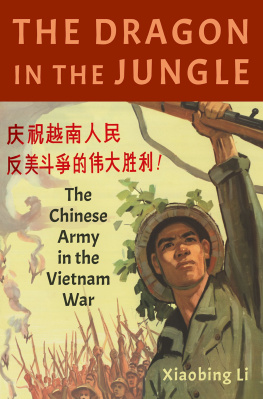
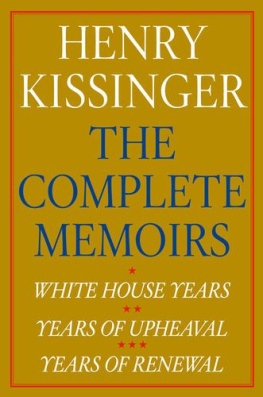
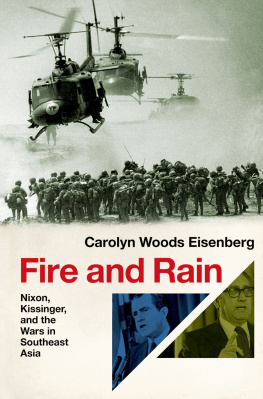
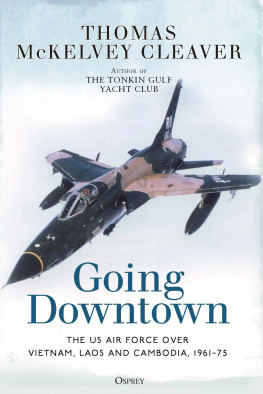


![Kissinger - Years of Upheaval: [VOL2 Classic Memoirs]](/uploads/posts/book/181244/thumbs/kissinger-years-of-upheaval-vol2-classic.jpg)
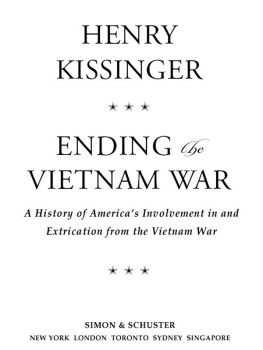
![Thompson Dr Wayne - To Hanoi And Back: The United States Air Force And North Vietnam 1966-1973 [Illustrated Edition]](/uploads/posts/book/150424/thumbs/thompson-dr-wayne-to-hanoi-and-back-the-united.jpg)
